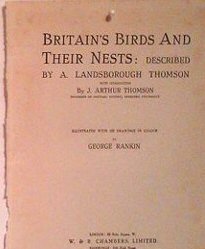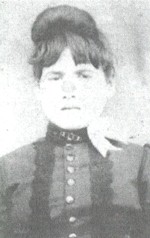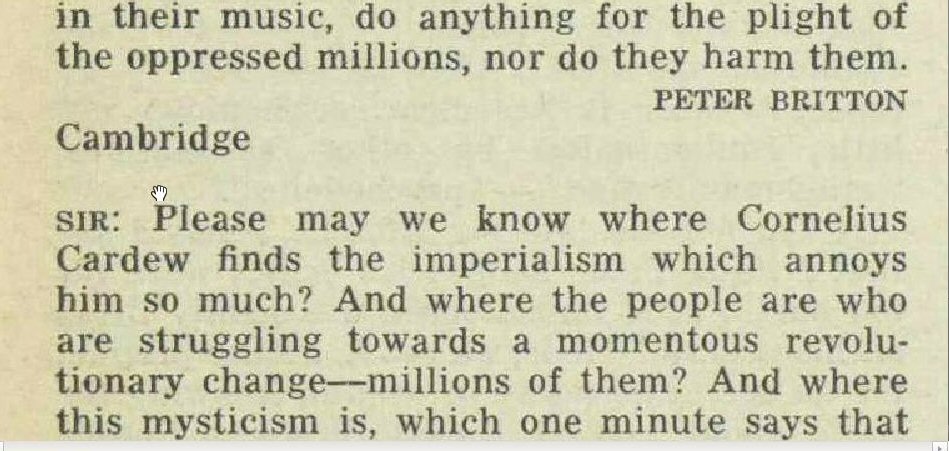Category Archives: Things I Have Learned
William Tayler’s Diary 29.1.37
The diary of William Tayler, footman, on this day in 1837:
Had a Lady to dinner here today. The Lady’s maid is taken very sick today: I sopose she has been eating too much or something of the kind. But she is very subject to sickness. Last summer, when we were coming home from Canterbury, she actually spewed all the way, a distance of sixty miles and not less time than eight hours. The people stared as we passed through the towns and villages as she couldent stop even then. It amused me very much to see how the country people stood stareing with their mouthes half open and half shut to see her pumping over the side of the carriage and me sitting by, quite unconserned, gnawing a piece of cake or some sandwiches or something or other, as her sickness did not spoil my apatite. It was very bad for her but I couldent do her any good as it was the motion of the carriage that caused her illness. I gave her something to drink every time we changed horses but no sooner than it was down it came up again, and so the road from Canterbury to London was pretty well perfumed with Brandy, Rum, Shrub, wine and such stuff. She very soon recovered after she got home and was all the better for it after. It’s eleven o’clock. My fire is out and I am off to bed.
Erasmus Stribbling Trout Shue’s Diary 23.1.97
A diary from Greenbrier County, West Virginia, this day in 1897:
Today I murdered my wife. I mashed her windpipe and broke her neck, which might seem an overreaction to the fact that she had not cooked any meat for my dinner, but then, as my first wife would tell you, I am a cruel and horrible and violent man. My second wife would probably say the same, had she not died in mysterious circumstances shortly after our marriage. Zona, who I killed today, was my third wife. I hope to have seven eventually.
I won’t get a chance to marry a further four wives if I am hanged or imprisoned for murder. So I took various steps to cover my tracks. I laid Zona out on the bed and dressed her in a high-necked dress with a stiff collar, and placed a veil over her face. When Dr Knapp arrived to examine the corpse, I sobbed and wailed and cradled Zona’s head in my hands. That did the trick, and he did not inspect her too closely, noting that death was due to “everlasting faint”.
So everything went according to plan and I seem to be in the clear, free to find a fourth wife to terrorise and/or kill. The worst that could happen is that Zona might appear as a ghost, to her grieving mother, and spill the beans, and prove that I broke her neck by rotating her ghostly head in a full circle atop her ghostly body. But even if she does, repeatedly, over four nights, and Zona’s mother goes babbling her tale, an American court of law in the enlightened 1890s is not going to accept the testimony of a ghost. Is it?
A Bee’s Idiom
Musingly he lit a cigarette. Through the open window a bee droned in on the blue air of evening. Closing his eyes he fell to considering whether the bee of one country would understand the remarks of that of another. The effect of the soil of a nation, had it consequences upon its flora? Were plants influenced at their roots? People sometimes spoke (and especially ladies) of the language of flowers . . . the pollen therefore of an English rose would probably vary, not inconsiderably, from that of a French, and a bee born and bred at home . . .would be at a loss to understand (it clearly followed) the conversation of one born and bred, here, abroad. A bee’s idiom varied then, as did man’s! And he wondered, this being proved the case, where the best bees’ accents were generally acquired.
Ronald Firbank, The Flower Beneath The Foot (1923)
Virginia Woolf’s Diary 21.1.18
The sausage-and-haddock woman, writing on this day in 1918:
Lytton came to tea; stayed to dinner, and about 10 o’ clock we both had that feeling of parched lips and used up vivacity which comes from hours of talk. But Lytton was most easy and agreeable. Among other things he gave us an amazing account of the British Sex Society which meets at Hampstead. [Now there’s a surprise. – FK] They were surprisingly frank; and fifty people of both sexes and various ages discussed without shame such questions as the deformity of Dean Swift’s penis; whether cats use the w.c.; self abuse; incest . . . I think of becoming a member. Lytton at different points exclaimed Penis; his contribution to the openness of the debate. We also discussed the future of the world; how we should like professions to exist no longer; Keats, old age, politics, Bloomsbury hypnotism – a great many subjects.
Delacroix’s Diary 18.1.24
On this day in 1824, Eugène Delacroix wrote in his diary:
I have been reading about an English judge who desired to live to a great age and accordingly proceeded to question every old man he met about his diet and the kind of life he led – whether his longevity had any connection with food, alcoholic liquour, and so forth. It appears that the only thing they had in common was early rising and, above all, not dozing off once they were awake. Most important.
Before you adopt this practice, it is well to bear in mind that I read somewhere – I wish I could recall where – of another fellow who I think also lived to a great age, and who made it his habit frequently to lean against a wall and take a nap, sleeping standing up, like a horse.
Captain Scott’s Diary 16.1.12
The diary of Robert Falcon Scott on this day in 1912:
Camp 68. Height 9,760. T. -23.5°. The worst has happened, or nearly the worst. We marched well in the morning and covered seven and a half miles. Noon sight showed us in Lat. 89° 42′ S., and we started off in high spirits in the afternoon, feeling that tomorrow would see us at our destination. About the second hour of the march Bowers’ sharp eyes detected what he thought was a cairn; he was uneasy about it, but argued that it must be a sastrugus. Half an hour later he detected a black speck ahead. Soon we knew this could not be a natural snow feature. We marched on, found that it was a black flag tied to a sledge bearer; near by the remains of a camp; sledge tracks and ski tracks going and coming and the clear trace of dogs; paws – many dogs. This told us the whole story. The Norwegians have forestalled us and are first at the Pole. It is a terrible disappointment, and I am very sorry for my loyal companions. Many thoughts come and much discussion have we had. Tomorrow we must march on to the Pole and then hasten home with all the speed we can compass. All the day-dreams must go; it will be a wearisome return.
English Towers
But in England towers so seldom mellowed rightly. They were too rain-washed, weather-beaten, wind-kissed, rugged; they turned tragic and outlived themselves; they became such hags of things; they grew dowdy and wore snapdragons; objects for picnics; rendezvous of lovers, haunts of vice . . . ; they were made a convenience of by owls; they were scarred by names; choked by refuse, and in the end they got ghoulish and took to too much ivy, and came toppling down.
from Ronald Firbank, Vainglory (1915)
Mabel
Chapter XX of Ronald Firbank’s Inclinations (1916), in its entirety:
“Mabel! Mabel! Mabel! Mabel!
Mabel! Mabel! Mabel! Mabel!”
Orwell’s Diary 8.1.39
Three eggs.
Regular readers will be aware that whenever I quote from George Orwell’s diaries I give the full and unabridged entry for the day in question. Tomorrow we will have to move on to a different diarist, so it is only fair that I take the opportunity to draw your attention to further, ornithologically significant, excitements in Orwell’s life which took place on the ninth of January 1939. Not merely
Two eggs
but
Saw large flock of green plover, apparently the same as in England.
Did he think foreign plovers would somehow differ from clean, decent, English plovers?
Kenneth Williams’ Diary 6.1.53
How impossible it is for me to make regular entries in the diary. I suddenly remember how I used to puzzle over the word at school. Always wondering why diary was so like Dairy and what the connection was. Never found out. Like that label on the bottle of Daddies sauce – it never stopped. The man on the label was holding a bottle of Daddies sauce and on the label was a man holding a bottle of Daddies sauce . . . ad infinitum ad nauseam for me at any rate.
Thus Kenneth Williams in his diary for this day in 1953. Astute readers will recall that Franz Kafka was also subject to diary-dairy befuddlement – or at least the manufacturers of postcards in his memory were so befuddled. It is unclear why this is connected to the infinite regression of the Daddies Sauce bottle label chap, unless Williams is trying to tell us that he has spent his entire life to date continuing to fret about the connection between diaries and dairies. But then he was a very fretful man, as was Kafka.
Alma’s Diary 3.1.02
Terribly Wrong
It is invariably the case that whenever anyone in the arts or humanities starts talking about Heisenberg’s uncertainty principle (overused and invariably misunderstood), something has gone terribly wrong.
Roger Kimball, in “The Museum As Funhouse” collected in Art’s Prospect : The Challenge Of Tradition In An Age Of Celebrity (2003)
The Year Of Our Lord MMXIII
Retorts To Cardew
When Cornelius Cardew went crackers and became, first a Maoist and then a devotee of Enver Hoxha of Albania, he repudiated much of his own earlier work and the avant garde in general. He turned his fire particularly on Stockhausen, with whom he had worked closely as both student and assistant. In The Listener (15 June 1972), Cardew published a screed with the self-explanatory title “Stockhausen Serves Imperialism”. Here are two letters which appeared in the magazine the following week:
No doubt Messrs Britton and Pullman went straight on to a list of Enemies of the People who would be the first to be executed when the Revolutionary Communist Party of Great Britain (Marxist-Leninist) – described by Richard Gott as among “the more perverse and irrelevant political groupings” of the time – ushered in the glorious proletarian revolution.













